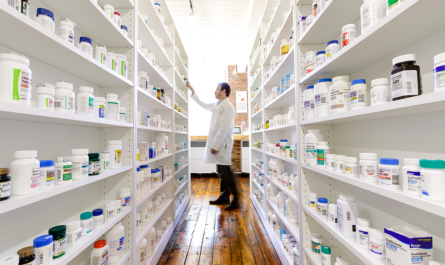The Brazil injectable drugs market for hospitals & ambulatory settings comprises pharmaceutical formulations that are administered parenterally or via injection into patients. The major products included are monoclonal antibodies, vaccines, insulin, human growth hormone, blood factors, small molecules, peptides, and many others. These injectable formulations provide effective treatment for various chronic and acute diseases including diabetes, cancer, infectious diseases, autoimmune disorders, and others. Self-injectable devices have emerged as an alternative for patients requiring injectable medications. These devices enable convenient, comfortable, and discreet self-administration of medicines on an outpatient basis without direct medical assistance. This has significantly boosted treatment adherence and healthcare outcomes for patients with conditions like rheumatoid arthritis, multiple sclerosis and other chronic diseases.
The global Brazil injectable drugs market for hospitals & ambulatory settings is estimated to be valued at US$ 9,353.45 Mn in 2023 and is expected to exhibit a CAGR of 7.8% over the forecast period 2023 to 2030, as highlighted in a new report published by Coherent Market Insights.
Market Dynamics
Growing adoption of self-injectable devices: The growing preference for self-administration of medicines via self-injectable devices is a major driver for the Brazil injectable drugs market. These devices enable convenient and discreet administration of medications without direct healthcare assistance. This improves treatment adherence and management of chronic conditions. As highlighted in the heading, rising adoption of self-injectable devices is expected to boost the market growth over the forecast period.
Rising prevalence of chronic diseases: The increasing incidence of chronic diseases like cancer, diabetes, rheumatoid arthritis and autoimmune disorders is another key factor fueling the demand for injectable drugs in Brazil. Chronic diseases require long-term medication use which drives the need for effective injectable drugs with improved therapeutic profiles. According to the WHO, cancer is the leading cause of death in Brazil with an estimated number of 200,000 new cancer cases recorded in 2020. This rising chronic disease burden will augment the Brazil injectable drugs market.
Segment Analysis
The Brazil injectable drugs market for hospitals and ambulatory settings is segmented based on product, application, end user and region. Based on product, the market is segmented into immunoglobulins, monoclonal antibodies, cytokines, insulin, peptide hormones and vaccines. The immunoglobulins segment dominates the market owing to high prevalence of immunodeficiency diseases in Brazil.
PEST Analysis
Political: The government aims to increase healthcare spending to improve access to treatment. Favorable regulations support the adoption of advanced drugs.
Economic: High disease burden and rising healthcare expenditure are driving market growth. However, economic uncertainties may challenge market expansion.
Social: Growing elderly population and increasing incidence of chronic diseases raise demand for improved treatment options. However, affordability issues exist in some parts of Brazil.
Technological: Adoption of advanced drug delivery systems such as prefilled syringes and auto-injectors enhances patient convenience. Developments in continuous manufacturing promise to improve supply chain efficiency.
Key Takeaways
The Brazil Injectable Drugs Market for Hospitals & Ambulatory Settings Growth is expected to witness high growth owing to rising incidence of chronic diseases, growing healthcare expenditure and favorable regulatory support. The global Brazil injectable drugs market for hospitals & ambulatory settings is estimated to be valued at US$ 9,353.45 Mn in 2023 and is expected to exhibit a CAGR of 7.8% over the forecast period 2023 to 2030.
Regional analysis:
The Southeast region holds the largest share in the Brazil market due to presence of major cities, growing disease burden and developing healthcare infrastructure. States like Sao Paulo and Rio de Janeiro are major revenue generators.
Key players:
Key players operating in the Brazil Injectable Drugs Market for Hospitals & Ambulatory Settings are Danaher Corporation, Agilent Technologies, Thermo Fisher Scientific, Merck KGaA, and Nikon Corporation.
*Note:
1. Source: Coherent Market Insights, Public sources, Desk research
2. We have leveraged AI tools to mine information and compile it



